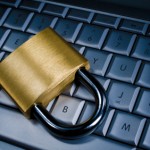 Whether you use it for personal or business purposes, chances are your computer contains information, photos, or data that you’d like to keep private. Many people use their computer to store contact information for friends or clients, financial information, or business documents. These are all sensitive materials that should be kept safe and protected. Here are five of the best ways your IT support specialist recommends to ensure all this data and information is secure on your computer.
Whether you use it for personal or business purposes, chances are your computer contains information, photos, or data that you’d like to keep private. Many people use their computer to store contact information for friends or clients, financial information, or business documents. These are all sensitive materials that should be kept safe and protected. Here are five of the best ways your IT support specialist recommends to ensure all this data and information is secure on your computer.
1) Back Up Your Data. No one ever thinks a disaster will happen to them, but computers crash and things go wrong every day. With cloud storage or an external hard drive, it’s so easy to back up your data in a secure location. Then you’ll never have to worry about losing all your work and documents if anything were to happen.
2) Update Your Operating System. You don’t need to buy the latest and greatest operating system every year, but it’s a good idea to keep your operating system up to date. Older operating systems can lose support from their manufacturers after some time. This makes them vulnerable to viruses, bugs, and glitches that can ruin your computer.
3) Update Your Programs. Much like your operating system, programs you use daily like Java, Adobe, or Internet Explorer, need to stay up to date. Without installing updates to your programs, you leave them vulnerable to bugs and viruses that can cause a computer crash. Pay attention to the ‘Install Updates’ pop-ups and always heed the program’s advice to update.
4) Use Anti-Virus Software. So many people think anti-virus software will cost them an arm and a leg, but there are many effective and low-cost (or even free) options out there. Anti-virus software is important for the health and safety of your computer. It can also prevent a virus from spreading to all your contacts or to other computers on your network. Read about the best free anti-virus programs here.
5) Frequently Change Passwords. How many times have you seen a hacked email or bogus status update come in from one of your friends? Email account and social media hacking can be prevented if you pay attention to your passwords. Don’t make them too obvious and try to include numbers or complicated words. It’s also a good idea to change the passwords to your important programs every quarter.
If you want to make sure your computers are safe and protected, give Firewall Computer Services a call. Our IT support specialist would love to use our computer expertise to make sure your data stays secure.
